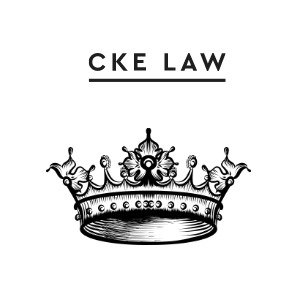Best Debt & Collection Lawyers in Manchester
Share your needs with us, get contacted by law firms.
Free. Takes 2 min.
List of the best lawyers in Manchester, United Kingdom
About Debt & Collection Law in Manchester, United Kingdom:
The Debt and Collection Law in Manchester, UK, falls primarily under the jurisdiction of the UK's national laws and regulations with a few local variations. This law covers any overdue payments owed by individuals or businesses, which can turn into debts. The field encompasses a diverse range of topics from credit card debts, unpaid invoices to mortgage arrears. There are two main parties in this field: the debtor, who owes the money, and the creditor, who seeks payment.
Why You May Need a Lawyer:
Legal assistance can be crucial if you find yourself overwhelmed by debt or facing a potential court case for outstanding payments. Creditors often employ the services of professional debt recovery or collection agencies, whose methods can often be aggressive. A lawyer can defend your rights, negotiate on your behalf, help to find viable repayment plans and work towards a solution that protects your interests.
Local Laws Overview:
The specific aspects of Debt & Collection law that apply in Manchester include the UK-wide Consumer Credit Act 1974, which protects individuals from unfair money lending practices. Furthermore, the Limitation Act 1980 applies, which stipulates a six-year limit for the majority of debts. The Financial Conduct Authority (FCA) guidelines on debt collection are also pivotal - these guidelines make it illegal for creditors to act deceitfully or aggressively towards debtors.
Frequently Asked Questions:
1. What can a debt collector legally do to collect a debt?
A debt collector can contact you, usually in writing, regarding your debt. They can also take court action, which can result in County Court Judgments (CCJs), repossession orders, or even bankruptcy proceedings if the debt is significant.
2. What happens if I cannot pay my debt?
If you can't pay your debt, it's important to seek advice immediately. Options may include negotiation with creditors to establish repayment plans, debt consolidation or a formal solution such as an Individual Voluntary Arrangement (IVA) or bankruptcy.
3. Can I stop a debt collector from contacting me?
While you cannot completely stop debt collectors from contacting you, they must abide by the FCA guidelines. This means they cannot harass you with continuous calls or messages.
4. Can I dispute a debt in Manchester, UK?
Yes, if you believe a debt is not yours, is a wrong amount, or is statute-barred under the Limitation Act, you can dispute it. Legal advice is recommended in this process.
5. How long can a debt be pursued in Manchester, UK?
According to the Limitation Act 1980, most debts in Manchester, UK, can be pursued for up to six years from the date of the last payment or the acknowledgement of the debt.
Additional Resources:
The Citizens Advice Bureau (CAB) can provide free advice on debt issues. Alternatively, you can approach debt charities such as StepChange and National Debtline for free help.
Next Steps:
If you need legal assistance with Debt & Collection issues in Manchester, you should find a solicitor who specialises in this field. They will be able to advise you on your options, representing your interests and help navigate through the legal complexities of your situation.
Lawzana helps you find the best lawyers and law firms in Manchester through a curated and pre-screened list of qualified legal professionals. Our platform offers rankings and detailed profiles of attorneys and law firms, allowing you to compare based on practice areas, including Debt & Collection, experience, and client feedback.
Each profile includes a description of the firm's areas of practice, client reviews, team members and partners, year of establishment, spoken languages, office locations, contact information, social media presence, and any published articles or resources. Most firms on our platform speak English and are experienced in both local and international legal matters.
Get a quote from top-rated law firms in Manchester, United Kingdom — quickly, securely, and without unnecessary hassle.
Disclaimer:
The information provided on this page is for general informational purposes only and does not constitute legal advice. While we strive to ensure the accuracy and relevance of the content, legal information may change over time, and interpretations of the law can vary. You should always consult with a qualified legal professional for advice specific to your situation.
We disclaim all liability for actions taken or not taken based on the content of this page. If you believe any information is incorrect or outdated, please contact us, and we will review and update it where appropriate.









